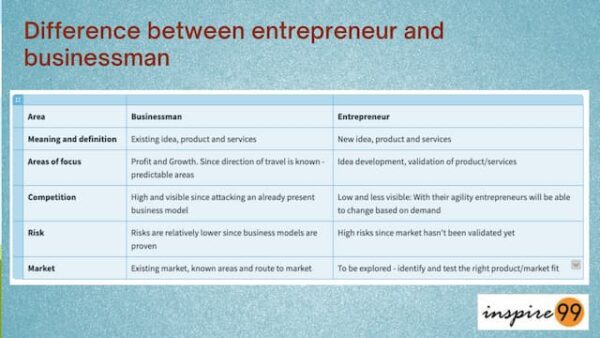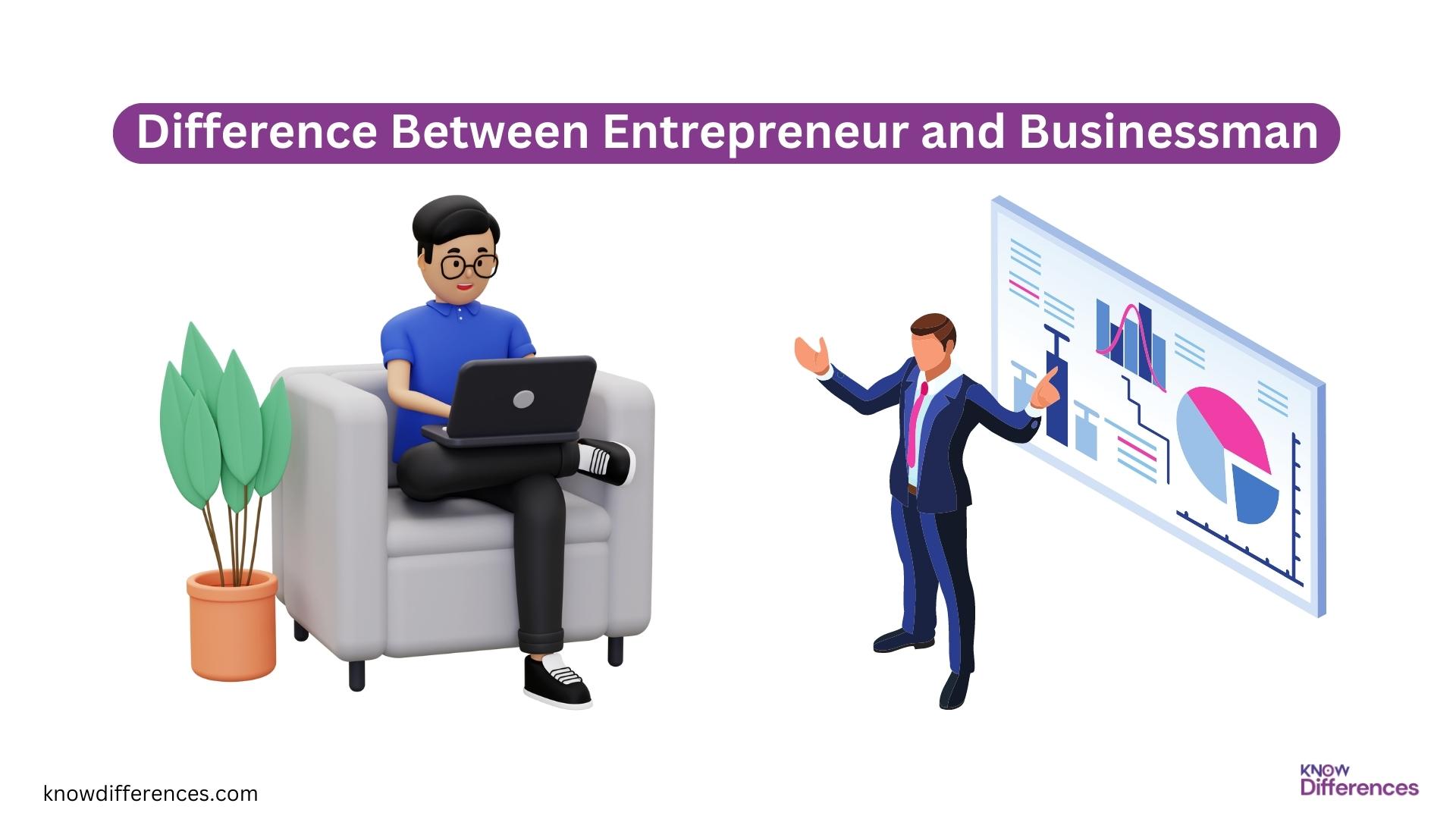Difference Between Entrepreneur And Businessman

In the bustling world of commerce, the terms entrepreneur and businessman are often used interchangeably, but beneath the surface lie fundamental distinctions. While both contribute to the economic landscape, their motivations, approaches, and ultimate goals diverge significantly. Understanding these nuances is crucial for aspiring professionals, investors, and anyone seeking to navigate the complexities of the business world.
This article will delve into the core differences between these two pivotal roles, exploring their distinct characteristics, motivations, and impact on the economy. We'll examine how their perspectives shape their decisions and how they navigate the ever-changing business environment.
Defining the Core: Innovation vs. Operation
The most prominent difference lies in their fundamental orientation: entrepreneurs are driven by innovation, while businessmen focus on operation.
Entrepreneurs identify unmet needs or untapped opportunities and develop novel solutions, often disrupting existing markets with their groundbreaking ideas.
Businessmen, on the other hand, concentrate on effectively managing and optimizing established businesses, ensuring profitability and sustainable growth within existing frameworks.
Risk and Reward: A Contrasting Approach
Entrepreneurs inherently embrace risk, venturing into uncharted territory with the potential for high rewards but also facing a significant possibility of failure. They are comfortable with uncertainty and are willing to experiment and adapt their strategies as needed.
Businessmen generally prefer a more calculated approach, minimizing risk and focusing on steady, predictable returns.
Their priority is to maintain stability and avoid unnecessary disruptions to their established business model.
Motivation and Vision: Beyond Profit
While both entrepreneurs and businessmen aim to generate profit, their underlying motivations often differ. Entrepreneurs are frequently driven by a desire to create something new, solve a problem, or leave a lasting impact on the world.
Profit is seen as a measure of their success and a means to further their vision, rather than the sole objective.
Businessmen, while not necessarily devoid of passion, typically prioritize financial performance and shareholder value above all else. Their vision is often centered on optimizing existing operations to maximize profitability and market share.
Scale and Growth: Different Trajectories
Entrepreneurs typically seek rapid growth and scalability, aiming to expand their operations quickly and reach a wide audience.
They are often comfortable with rapid change and are willing to make significant investments to fuel their growth.
Businessmen tend to favor a more measured approach, prioritizing sustainable growth over explosive expansion. They focus on building a solid foundation and gradually increasing their market presence.
Perspectives from the Experts
According to the Harvard Business Review, "Entrepreneurship is about creation and innovation, while business management is about efficiency and execution."
This sentiment is echoed by the Small Business Administration (SBA), which defines entrepreneurs as individuals who "organize, manage, and assume the risks of a business or enterprise."
Further, the Kauffman Foundation, a leading organization dedicated to promoting entrepreneurship, emphasizes the role of innovation and disruption in entrepreneurial ventures.
The Interplay: A Necessary Symbiosis
It's important to note that the roles of entrepreneur and businessman are not mutually exclusive. In fact, many successful businesses require a blend of both entrepreneurial vision and strong management skills.
An entrepreneur may initially launch a groundbreaking venture, but eventually, a businessman is needed to effectively manage and scale the operation.
Conversely, a businessman can leverage entrepreneurial thinking to identify new opportunities and drive innovation within an established organization.
Looking Ahead: The Future of Business
As the business landscape continues to evolve, the distinction between entrepreneur and businessman may become increasingly blurred.
Organizations are recognizing the importance of fostering an entrepreneurial spirit within their established structures, encouraging employees to think creatively and challenge the status quo. This trend, often referred to as "intrapreneurship," allows businesses to innovate and adapt to changing market conditions without sacrificing stability.
Ultimately, whether one identifies as an entrepreneur or a businessman, the keys to success remain the same: a clear vision, a strong work ethic, and a commitment to delivering value to customers. The choice between these paths depends on individual passions, risk tolerance, and aspirations for the future.


















